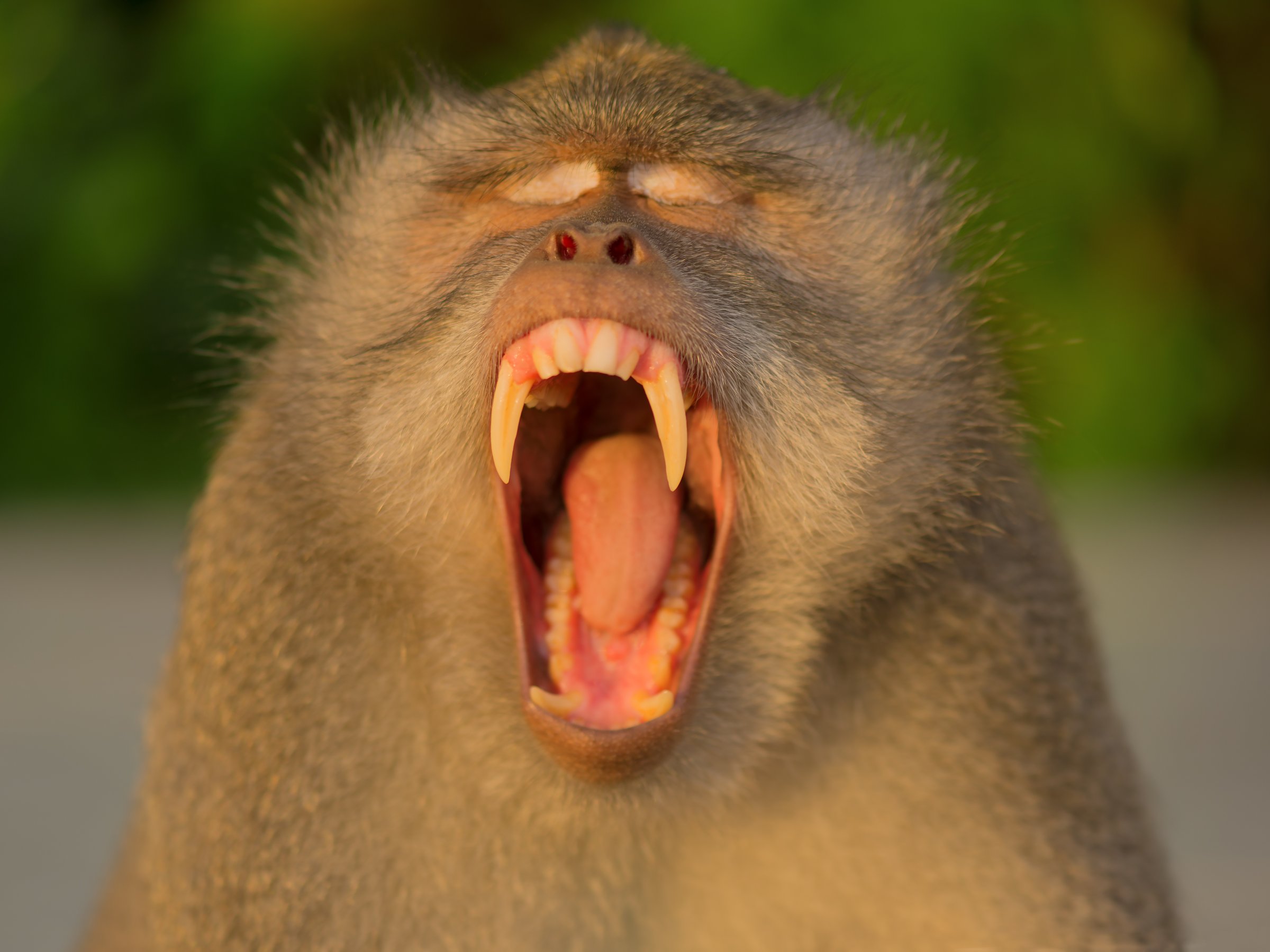 Portrait of an adult yawning monkey. Fangs of the macaque. Ubud, Bali, Indonesia.Shutterstock
Portrait of an adult yawning monkey. Fangs of the macaque. Ubud, Bali, Indonesia.Shutterstock
Betting against the so-called FANG stocks has been an exercise in futility this year.
Short sellers targeting Facebook, Amazon, Netflix, and Google (aka Alphabet) have absorbed a whopping $3.3 billion loss in 2017, according to data compiled by financial analytics firm S3 Partners.
Wagering on share weakness in the FANGs was always going to be an uphill climb for traders. The companies have been an indispensable pillar of the bull market for the past eight years, with the group surging more than four times the S&P 500 index’s 253% increase over the period. The group has climbed 24% in 2017 alone, again more than quadruple the benchmark’s return.
Downside speculators have been undeterred by the strength. In fact, they’ve increased short interest balances every month this year, S3 data show. While some investors are simply hedging gains, more of them are betting that the pace of share increases is unsustainable and that a selloff is bound to occur, according to Ihor Dusaniwsky, the firm’s head of research.
As such, all four FANG stocks are in the top 15 most unprofitable shorts this year, joining Tesla, Nvidia and Caterpillar in the resistance against traders who profit from weakness.
To Dusaniwsky, the most head-scratching aspect of the failing trade is not that investors are doing it — it’s that they’ve insisted upon doubling down despite continuously whiffing.
“What is surprising is that short sellers continue to build their positions as they rack up large mark to market losses month after month,” he wrote in a client note. “With both short interest and losses growing every month, short sellers are realizing that FANG’s bite might be worse than their bark.”
NOW WATCH: This animated map shows how religion spread across the world













